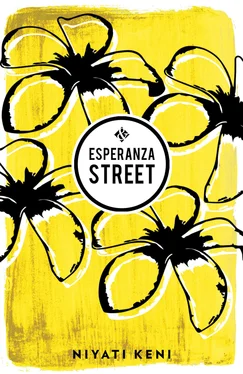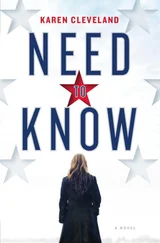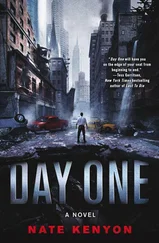Aunt Mary greeted Earl politely and sat in the sala while he and Dub talked. Earl was a kind of American she wasn’t so familiar with. ‘An ex-USMC mechanic, ma’am,’ he said, and I thought he sounded rueful. ‘I went home after my discharge, but kind of drifted back and wandered round your fine archipelago for a few years before finally running aground here.’ He slapped the upholstery, at which Aunt Mary looked alarmed. ‘In Puerto,’ he added and stretched his arm out across the back of the seat again. Aunt Mary smiled at him. There were a lot of Earls in the Philippines. They often ate and drank in the same places and could be overheard sometimes complaining about how Puerto wasn’t like Pittsburgh or Reno because you couldn’t get this or that.
Earl leaned forward and pushed the guitar towards Dub. ‘The exact same model,’ he said. It was a beauty. A second-hand Stratocaster; warm, dark wood with a high gloss. I would have loved to touch it. It was that sort of object, asking to be picked up to complete itself, but I knew it was off-limits to me. It wasn’t like the piano, a piece of furniture that required polishing; it was a part of the body. I’d never seen anything like it, but when Dub picked it up it looked to me like he’d always held it. I watched him as I served out the coffee and calamansi juice, loitering afterwards in the doorway as Benny ran a careful, supervised finger along the guitar’s neck.
‘It was very expensive, Earl?’ Aunt Mary said doubtfully.
‘Sure,’ whistled Earl. Then, understanding, he said to Dub, ‘You can work it off at the garage.’ He turned to Aunt Mary and, smiling, said, ‘He’s not bad with a spanner. A little training and he could make a career of it.’
Aunt Mary laughed carefully. Dub said, ‘You bet,’ his fingers already forming chords, picking quietly at the strings.
‘Dominic is due to go to college soon,’ Aunt Mary said.
‘Just till I’ve paid Earl back for her, Mom,’ Dub said without looking up. Aunt Mary folded her hands on her lap. This wasn’t a negotiation she would attempt in front of an audience.
Dub didn’t move from the sala for the rest of the afternoon and, in between my chores, I watched him. By the evening, he had a notepad in front of him and a pencil behind one ear, and he sang softly to himself as he scribbled things down.
He started to grow his hair long, down to his shoulders. He’d run his hands through it when he took off his motorcycle helmet, or smooth it down with the shell-handled comb that he kept at the ready in his jeans pocket. Other times, he’d lean over and shake the entire top half of his body before throwing his head back to let his hair fall into place. One day Aunt Mary, tired of reminding him to trim it at least, turned her attentions to mine instead, at which America sat me down firmly on a kitchen stool and took the scissors to it. ‘Not too short,’ I said as she wrapped a sheet round my shoulders.
‘You want me to leave it longer here , maybe a nice fringe ?’ she said, and I knew she just meant to cut it as short as she could so as to leave the longest interval before she had to do it again. She pushed my head forward and I felt the cool metal of the scissors at the nape of my neck. From the sala came the sound of Dub singing. His voice was a little rough at the edges. Maybe he sang that way on purpose because the music he liked best was what was huge in London and the States, he said, and it was called punk . It was unlike anything I’d ever heard before. In our house, my father had mostly played Sam Cooke, Rey Valera, Elvis Presley.
‘You like that?’ America said, waving the scissors in the direction of the sala.
I hesitated. ‘Sure.’
‘What do you know? You never had any taste. That’s why you don’t know that your hair suits you short.’
We didn’t have to endure Dub’s punk for much longer. A month after he started work at the garage, he took to writing love songs.
Earl’s garage occupied the corner of Esperanza and Prosperidad, only a couple of blocks from the jetty. Prosperidad was an old, narrow street, shabby but still respectable, where the bustle of Esperanza was abruptly curtailed by dense wooden apartment blocks just like my father’s, within which lived families whose children might become kindergarten teachers, factory foremen, tour guides. After Dub started work at the garage, I found myself there often, dispatched by America with another of his forgotten lunch parcels or a message from his mother.
It was late morning, the sun high, as I made my way there yet again, America’s reheated fish and rice warm in my hands. I walked quickly. I was due at the curandero’s afterwards to deliver payment to him for treating America’s latest ailment and I was looking forward to it: the curandero’s shop was interesting; his daughter, Suelita, even more so. Besides, he’d also known my mother and, unlike my father, talked about her freely when we met.
When I arrived at the garage, Dub was on the forecourt talking to a woman. I couldn’t see her face; she was wearing a headscarf and sunglasses like the middle-aged rich women at the top of Esperanza. Dub was smiling, but a little uncomfortably, so I figured she was giving him a hard time over her car repairs, reminding him that she knew his mother. My thoughts were full of Suelita, and it wasn’t until the woman spoke that I realised she was young. ‘You think you’re Jimmy Dean?’ she leaned forward, looking over her sunglasses at Dub. ‘You know who Jimmy Dean is, right?’ Her voice was like water on a hot day.
Dub didn’t reply. He just stood there staring at her and, because I felt affronted on his behalf — even I knew who Jimmy Dean was — and because her voice made me feel like an intruder, I thrust the food parcel at him and said quickly, without thinking, ‘Your mother sent lunch.’ He looked at me as if he’d only just seen me and reddened.
‘Mommy’s little boy, huh?’ the woman said. ‘She cut the crusts off too?’
‘Fish,’ I said, feeling the need to defend Dub, ‘and rice. No crusts.’
The woman smiled at me, a little uncertainly perhaps, and I felt like I’d been wrong-footed. Dub made no move to take his lunch parcel. I waited for a signal from him that would let me leave but he was looking at her. ‘So when will the car be ready?’ she said.
Dub recovered enough to ask, ‘Will you be coming every day to remind me until it’s done?’
‘Will it make any difference?’ she asked.
‘Well now,’ he said smoothly, ‘it’ll take a whole lot longer then, my lady.’
Earl came out looking for Dub, but when he saw the woman and the look on Dub’s face he retreated, smiling to himself. After a minute, he came out again and said, ‘A little help.’ Maybe he’d decided Dub could flirt on his own time. Dub walked back inside, but from the way he moved, every step as soft as a cat’s, I could see he was conscious of the woman’s gaze.
The woman watched him go. Still holding Dub’s lunch, I turned to follow him, but she started talking. Even as she talked, she stared into the gloom of the garage, to where Dub and Earl were bent over a bike. ‘I moved in two weeks ago,’ she said, pointing to the building opposite. ‘I told Eddie I wanted the top floor. It’s always cooler on a top floor, right? I get two rooms, a kitchen, my own bathroom. And a balcony. I leave the balcony doors open all day until I have to close them in the evening to keep the bugs out. I open them again later, when the bugs are gone, to let the night air in. I don’t like to feel like I’m in a box. Anyway, fresh air is healthy, don’t you think?’ I looked up at her balcony. She had a clear view of the garage forecourt. Recently Dub had taken to working out there with his shirt off. I wondered why she was talking to me; did she think I was his brother? I stood up a little straighter in what I wore: Benny’s old jeans and a t-shirt that said Sampaguita Chemical Corp , a present from one of Aunt Mary’s friends.
Читать дальше












